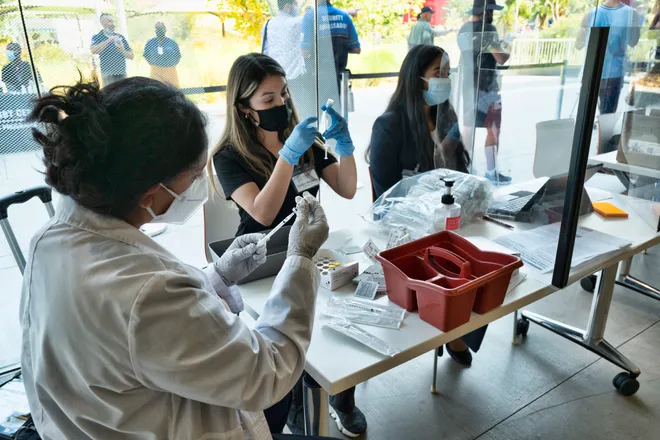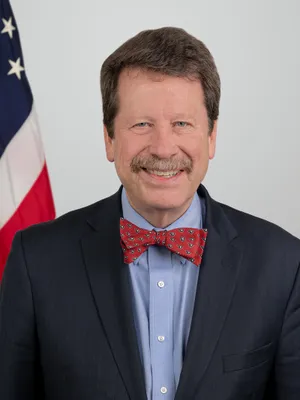This holiday season, protect yourself, your family and our communities with vaccines
As we head into the holiday season, we have an opportunity to help protect ourselves from getting sick. It’s time for a reality check.
Here are four key facts regarding vaccines and vaccination approved or authorized by the Food and Drug Administration:
- Vaccination saves the lives of millions of children and adults every year.
- Vaccines train the immune system to reduce the risk from infectious disease.
- Vaccination can prevent serious illness, hospitalization or death when an infection occurs.
- The health benefits of available vaccines far outweigh any risks.
It is a simple fact that vaccination works.
Vaccines approved or authorized by the FDA are of high quality, effective and safe. They have been tested and evaluated, and their safety is also closely and continuously monitored through multiple surveillance systems, which alert both the FDA and the Centers for Disease Control and Prevention when a potential concern arises.

Vaccines eradicated smallpox, eliminated polio from America
Although vaccines might not be perfect, vaccination is among the safest and most effective public health measures ever introduced. Vaccination is directly responsible for reducing suffering and saving innumerable lives around the world.
Because of vaccines, smallpox, a disease that killed about 1 in 3 individuals infected in the past, has been eradicated. Except for rare cases, polio has been eliminated from circulation in the United States, and with continued vaccination, polio also may also be eradicated in the not-too-distant future.
New COVID variant:A growing COVID-19 variant has taken off this holiday season. How to protect yourself.
The relationship between vaccination and the near elimination of these two infectious diseases is indisputable.
The overall benefits of vaccination further provide protection against a number of other infectious diseases. In fact, vaccines have been so effective throughout history that we now often take for granted the protection that they provide us from serious or life-threatening diseases.
WHO chief:20 years ago, George W. Bush launched AIDS relief and saved lives. US needs to lead again.
We also do not routinely see the serious diseases that they prevent – such as measles, which kills at least 1 in every 1,000 children infected with the virus.
If anyone doubts the value of vaccination, look at the tens of thousands of measles deaths occurring around the world where vaccination is unavailable or inaccessible, or alternatively look at the tens of millions of children’s lives saved across the globe just since the vaccine became widely available.
The measles vaccine is at least 96% effective in preventing illness and is rarely associated with serious side effects.
Fighting COVID, flu, respiratory syncytial virus (RSV)
Similarly, vaccines that help prevent respiratory viruses save lives. Data from multiple studies indicate that since the beginning of the COVID-19 pandemic, tens of millions of lives were saved by vaccination. And although the benefits were most clear in older individuals, the vaccine continues to benefit all ages.
During the course of the pandemic, those who remained unvaccinated had almost a 2.5 times higher risk of death from COVID-19 than those who had received even at least a single vaccine dose.
We can't let our guard down, America:I'm a doctor still treating COVID-19 patients. I'm getting the booster – you should, too.

Additionally, data from the past two years also make it clear that people who stay up to date on vaccination have an even lower risk of hospitalization or death from COVID-19.
For the first time, we have vaccines to reduce the risk of serious illness from COVID-19, influenza and respiratory syncytial virus (RSV) in appropriate populations. This holiday season, if we want to reduce deaths and hospitalization from these respiratory viruses, we must take full advantage of the high-quality, safe and effective vaccines available in the United States.

We have the tools available to us. It’s time to help protect ourselves, our families and our communities to enable more time enjoying the holiday and less time fretting about serious illness.
Peter Marks, MD, is director of the Center for Biologics Evaluation and Research at the Food and Drug Administration. Robert Califf, MD, is the commissioner of Food and Drugs.
Disclaimer: The copyright of this article belongs to the original author. Reposting this article is solely for the purpose of information dissemination and does not constitute any investment advice. If there is any infringement, please contact us immediately. We will make corrections or deletions as necessary. Thank you.







